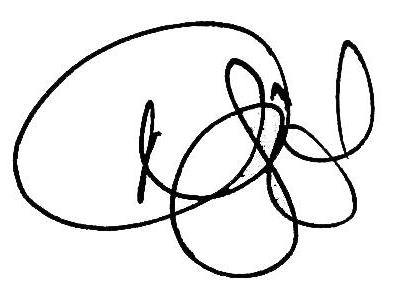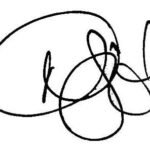by Nigel Savage
Thursday, October 18, 2018 | 9 Cheshvan 5779
Dear All,
This is a blunter email than usual. For 18 years Hazon’s impact in the world has been partly predicated on not ‘banging people over the head,’ as I sometimes put it. We’re not here to make you feel bad. And not least because many of us aren’t feeling so great about the world right now, and thus don’t need anyone to make us feel worse. Pedagogically, personal or institutional change is not best effected by telling people what to do.
And yet, that said, this is a moment in which I don’t have to tell you what to do. I just want to direct your gaze. I note that a significant number of Americans across the Florida panhandle are now homeless, or have wrecked houses, or are mourning the random deaths of loved ones. They could be you or me. They had the misfortune to find themselves in the way of a storm whose impact was greater than previous ones because of aggregate human behavior these last decades. And it happened just after the publication of the IPCC report, which makes absolutely clear that things are on track to get worse in the future. Direct your gaze to this short article, if you haven’t read much on the IPCC report yet.
And yet I reiterate – this is never more necessary than today – that human beings can change things for good. It is the lesson of human history. It is certainly the lesson of Jewish history. There is evil and violence – including, apparently, the premeditated dismembering of someone who lived not far from where I lived when I was at Georgetown. Yet constantly there is also goodness and altruism, including Rabbi David Wolpe’s essay this week about Chiune Sugihara, of whom I had never heard. And this important essay by David Brooks, which I think is particularly poorly titled. (The title is true, and interesting and maybe attention-grabbing. But the title should have been more like, “People! Wake up!! Use your critical faculties!!!”)
So… it is not for me to tell you what to do. But, as we know, we are overconsuming the world; we must change our behaviors personally and communally; and we need governments at all levels to act intelligently on behalf not only of future generations, but also we ourselves in ten or twenty or thirty years time.
So, if you want to feel that you are in any way going to be part of the solution, I ask you to do one or more of these four things, and ideally all four:
- Take a personal decision to live more lightly. If – for instance – you eat less meat, stop eating industrial meat, and ride or walk more frequently, you will (a) reduce your carbon output significantly, and (b) live a longer and healthier life. There is abundant data on both these points. Today’s as fine a day as any to commit to that change.
- Make sure you vote in the midterm elections for whichever candidate is most serious about tackling these issues. (If you’re not sure – go to their websites and look or email or phone them and ask.)
- If you’re in any way involved in a Jewish institution, email merav.cohen@hazon.orgto find out more about joining our Hazon Seal of Sustainability. That’s the single best way for any Jewish institution to start to walk the walk.
- Support Hazon financially in a significant way. Please don’t take this organization for granted. The work we’re doing is vital, and we need to grow it, and we literally cannot do that unless existing supporters give more money to us, and new people become stakeholders for the first time. Click here if you want to become a monthly sustainer, or give a one-off donation online. Or be in touch with me directly or with jeremy.kranowitz@hazon.org if you want to give a larger gift, or appreciated stock, or put Hazon in your will.
Last night we had our first Hazon Book Club meeting, discussing Richard Powers’ magnificent novel, The Overstory. And tonight I’m headed out for Israel – next week I’ll be one of a record number of riders on Hazon’s Israel Ride, cycling from Jerusalem to Eilat to support Hazon and the Arava Institute and peace, partnership, and environmental sustainability.
It was against this backdrop that one little line in this week’s parsha hit me differently. Early on we learn that there is a quarrel between Avraham’s herdsmen and Lot’s herdsmen. They’re fighting over grazing rights. Avraham resolves it by saying, let’s just head off in different directions – if you go left, I’ll go right, and if you go right, I’ll go left (Bereishit 13:9). (Please don’t do this on the Israel Ride, people…)
It reads freshly because a story that would once have seemed ancient and irrelevant suddenly strikes me as timely, and far harder to resolve. Human beings have fought over resources in the past. And there have been winners and losers and violence along the way. We are blessed and lucky to have been born in the US or the UK rather than in the Sudan or Syria. But if climate change indirectly engenders civil instability, we should make no presumptions about being exempt from what then ensues. The English Civil War killed 84,000 people out of a population of about 5.4m. The American Civil War killed 620,000 out of 31.4m. We should not watch the news and think that these awful things happen only in faraway places. We live in peace to the extent that we foster a tolerant and rational civil society. The David Brooks essay is critical because it’s a reminder that we’re not, in fact, living in a civil war, and I pray that we pull back from our present divisions before one should ever happen.
This is Jewishly resonant in a different way, by the way. The history of Jewish migration is partly the story of Jews saying, if you lot are here, I’ll go there. But today there is no here and no there. Now we’ve filled up the world. If significant parts of Southeast Asia becomes unlivable, where will those people go? If hurricanes wreak tens of billions of dollars’ worth of damage across US coastal areas, at what point does flood insurance become unattainable, or the shared financial costs of rebuilding start to inflict real damage on the US economy and then on US society? People don’t always make wise decisions when it looks like they don’t have much to lose.
So…. lech lecha indeed. The rabbis have always read this as an internal journey as well as a physical journey; the journey of going to ourselves, of growing, becoming. Ya’akov’s journey in becoming Yisrael. Leah’s journey, in the progression of how she names her children.
In summary: As the fall season gets underway may we be blessed to act wisely. Live more lightly. Vote in the midterms. Plan to join the Hazon Seal of Sustainability. And click here to support Hazon.
Thank you, Shabbat shalom,

Nigel
PS – Ok. If you made it this far, here’s one final little gift. I was thinking about Avraham and Lot, going left and going right, thinking about what happens when two tribes clash. And then I suddenly remembered Frankie Goes To Hollywood (!) and Two Tribes (!!), which for a while in the eighties in Britain was everywhere, all the time. So – here is your end-of-email-whoa-where-did-that-come-from-video-moment!!!
